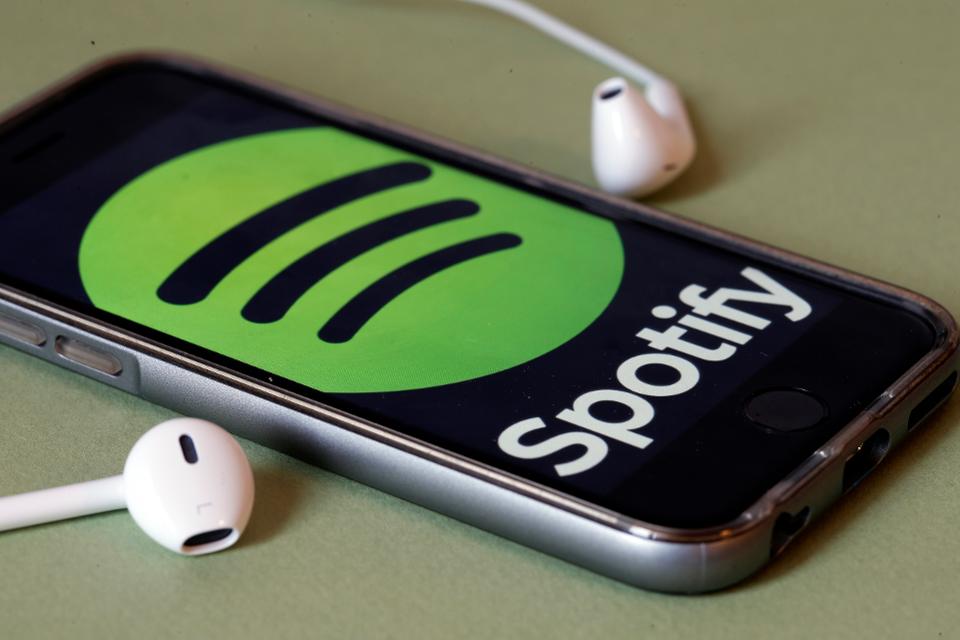 Avoiding misinformation, Spotify bans political ads on its platform in 2020 ahead of the U.S Presidential Election. (Image via Forbes)
Avoiding misinformation, Spotify bans political ads on its platform in 2020 ahead of the U.S Presidential Election. (Image via Forbes)
Spotify to ban political ads in 2020
Ahead of the 2020 Presidential Election in the United States (U.S), an online music juggernaut, Spotify, announced that it will ban any political ads to prevent any misinformation. The Sweden-based company followed Twitter and Google’s stead. Twitter completely banned political ads on its platform, while Google only limited how the ads are targeted.With 130 million users worldwide, Spotify admitted that it lacked the robust ability to “responsibly validate” and review false information.
Beginning in early 2020, Spotify will suspend any political ads on its free and paid services for both music and original podcasts. The policy will only affect the U.S region as it is the only region that sells political ads.
Reported by the Advertising Age, previously, Democratic presidential candidate, Bernie Sanders, and Republican committee have both advertised themselves on the musical platform. While Spotify did not reveal how much revenues it got from the ads, the candidates saw Spotify as a potential platform to win votes from American youngsters.
Not only Spotify but all tech platforms are also reviewing their stances to prevent political misinformation as occurred in the previous 2016 Presidential Election, won by Donald Trump.
The CEO of Twitter, Jack Dorsey, took bold action in last October by banning all political ads from Twitter. Tik Tok, LinkedIn, Pinterest, and Twitch then followed Dorsey’s voice. The latest was Spotify.
Nonetheless, some tech platforms still allow political ads.
Facebook, the world’s largest social media platform, still stands firm to include political ads on its platform, stating that it is up to the media and public to filter and digest the information whether they are right or wrong. Snapchat and Reddit also allowed political ads.
Google still also allows political ads on its platform. However, in November, Google stated that it will limit political users from using “micro-targeting” to promote themselves based on users’ browsing data, political affiliation or other factors, for its ads, including on YouTube.
In exchange, Google only allows the political users to rely on general categories such as age, gender or postal code location to promote themselves.
Other minor platforms refused to give comment on whether they are going to ban political ads or not.
Source: https://bit.ly/2ZwZlL2
 English
English Japan
Japan

where to buy zytenz in stores pde5 inhibitors in food 100mg viagra cost alternative to viagra chinese libido enhancer fda drug approvals by year
modafinil and nicotine [url=https://pro-vi-gil.com/#]online doctor prescription modafinil [/url] modafinil side effects long term where to buy provigil online usa
ivermectin in collies ivermectin 80 mg durvet ivermectin pour on dewormer 250ml where can i get some ivermectin
pixel sex games [url="https://sexgameszone.com/?"]gigi sex games cancun[/url] helena price strip games sex
prednisone prescriptions [url=https://pred-ni-sone.com/#]prednisone buy online [/url] prednisone 20 mg side effects where can i buy prednisone
pfizer vgr 100 effects products not approved by fda viagra use stacking cialis with viagra best libido enhancing supplements viagra bestellen men's supplement for erectile men's sexual health and wellness ed medication price comparison viagra men male enhancement reviews consumer reports medications that can cause erectile dysfunction does homemade viagra really work can viagra be used for women non prescription online pharmacy reviews grapefruit with medication side effects prescription drugs to increase libido samples for healthcare professionals young men and viagra cost for viagra free medication samples for physicians grocery coupons 2018 medication to decrease male libido best online pharmacy for viagra tadalafil generic vs cialis reviews viagra overdose side effects first time viagra user buy viagra cheap mercury drug logo uk viagra contour next concierge price for viagra 10 dollars off walmart coupon
amoxicillin from mexico amoxicillin brand over the counter pink bubble gum amoxil flavor ibuprofen and amoxicillin
best generic provigil modafinil how long to take effect where to buy provigil online usa
neurontin for ocd can neurontin be taken with carvedilol how does gabapentin work in the brain
amoxicillin for sinusitis purchase amoxil 1000mg uk amoxicillin suspension dosage gimalxina amoxicillin 500mg
pig wormer ivermectin dosage of ivermectin for humans how much 1% ivermectin for human to treat lice
azithromycin half life zithromax pills online over the counter zithromax z pak how to take azithromycin for chlamydia
ivermectin plus goats stromectol otc can roadishian ridgebacks take ivermectin how often to inject ivermectin in a dog
international pharmacies that ship to the usa when to use viagra lady viagra amazon pharmacy goodrx gold prices
topical ivermectin demodex where to buy stromectol online how fast does ivermectin work what dogs cant have ivermectin
provigil copay card modafinil vs adrafinil reddit difference between modafinil and nuvigil reddit how to take modafinil
is viagra safe for seniors fda nda database viagra label joke cialis viagra generic cialis shipped from usa cost of viagra 100mg walmart
neurontin side effects canada neurontin 100mg lowest price does neurontin cause itching and burning sensation what are the side effects of gabapentin 300mg
ivermectin demodex dose ivermectin 50 mg ivermectin for demodex mites in humans how much ivermectin paste to give a chihuahua
albuterol alternatives price of ventolin difference between ventolin and salbutamol inhaler where can i buy albuterol sulfate